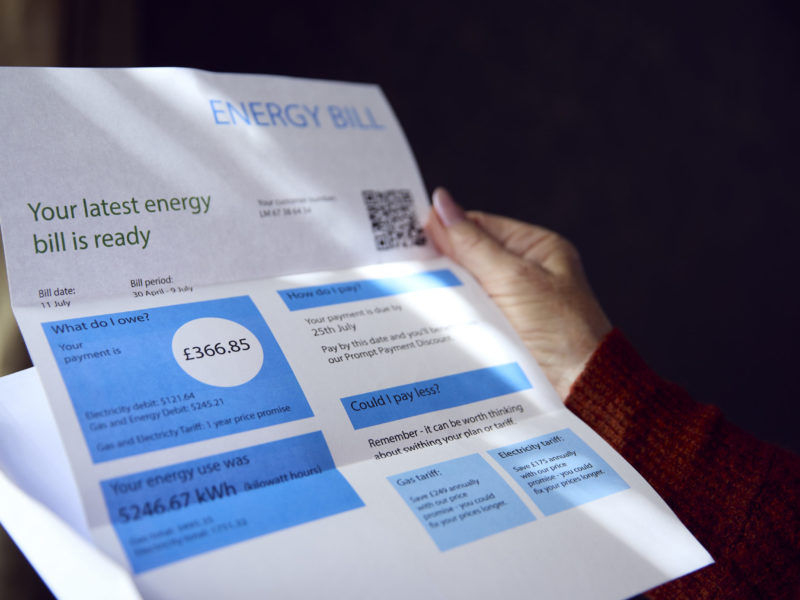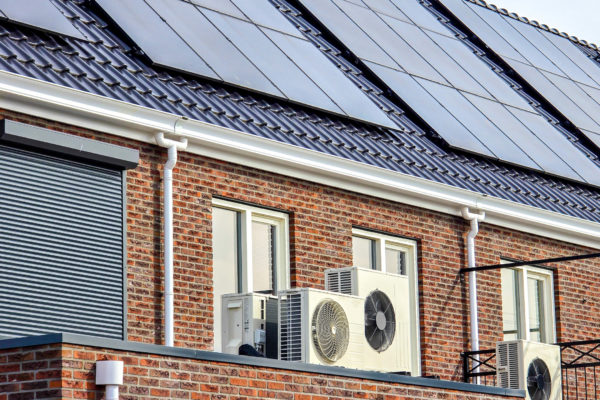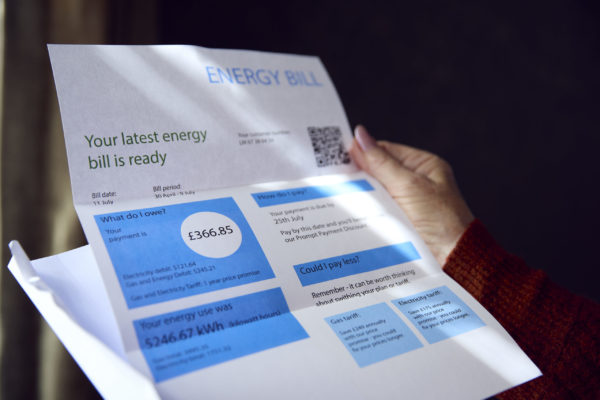The pressure of mounting energy bills is a constant challenge for the community sector, as well as households, across the UK. But, reviewing what is included in our energy bills could present a triple-win for government: lowering people’s electricity bills, accelerating the transition to renewables, and ensuring the costs of that transition are fair and equitable.
What’s in a bill?
The price you pay for electricity doesn’t just account for the cost of producing it, but a whole range of other charges too. In fact, the wholesale cost – the cost of the energy itself – only accounts for around a third (36%) of your electricity bill. [1]
The rest of your bill covers the costs of maintaining the grid, operating costs, VAT and a set of charges known as ‘policy costs’ or ‘levies’, which account for 16% of your final bill.
Some of these levies are used to provide support for vulnerable households, either providing energy efficiency improvements or discounts on bills, but the majority are categorised as ‘environmental levies’ and finance renewable energy projects.
The current structure of our electricity bills means that we have some the most expensive domestic and industrial electricity prices internationally, according to National Audit Office figures.
A stumbling block with unfair impact
The current structure of our electricity bills means we all contribute to these much-needed renewable energy projects, but poorer households and organisations – especially those with inefficient electrical heating – are forced to pay disproportionately more of their income on these levies.
Not only is the current system unfair and regressive, but it’s creating a drag on our transition to clean energy, acting as a disincentive for the community sector and households to take action. If electricity were cheaper, many more households and organisations would save money by replacing their gas boiler with a heat pump. This would turbocharge the clean heat revolution we need to reach Net Zero.
Historically, adding the cost of clean energy generation to electricity bills made sense, but now our electricity bills carry a whopping 82% of the burden of levies compared to gas [2], something Nesta has described as ‘a reverse carbon tax’ [3].
In France, electricity prices have been as low as half the UK’s, and it is no coincidence that it is currently installing 10x as many heat pumps as us per year. Moving away from gas and decarbonising heat will be critical to achieve Net Zero, but this will only happen if we can bring down electricity costs.
There is a lot of enthusiasm within the community sector for reaching Net Zero. Unfortunately, a lack of financial support, the high price of electricity, as well as an out-of-date audit system, are all holding the sector back.
How the government could respond
The UK government has a mission to achieve clean power by 2030, and could realistically achieve this while keeping energy bills at their current level. But with the right policy reforms, they could do so while also reducing electricity bills by over £200, according to modelling from E3G [4].
By taking some levies out of our electricity bills, and raising the money through general taxation, the burden of our energy transition moves away from the poorest and provides everyone with lower bills.
In turn, this provides a real boost to achieving Net Zero. Cheaper electricity makes heat pumps a much more viable option for the community sector, and society at large. Research published last week outlined how removing levies from electricity bills could reduce the total cost of installing, maintaining and running a heat pump to less than a gas boiler [5]. If these reforms were also paired with an allowance of tax-free electricity for heat pump users, there would be little doubt that heat pumps become the economic choice for heating in the UK.
These reforms to electricity bills are achievable in the short-term, providing the much-needed context for the community sector to invest in clean power and clean heat, as well as securing a triple-win for government: lowering people’s bills, accelerating the transition to renewables, and ensuring the costs of that transition are fair and equitable.





